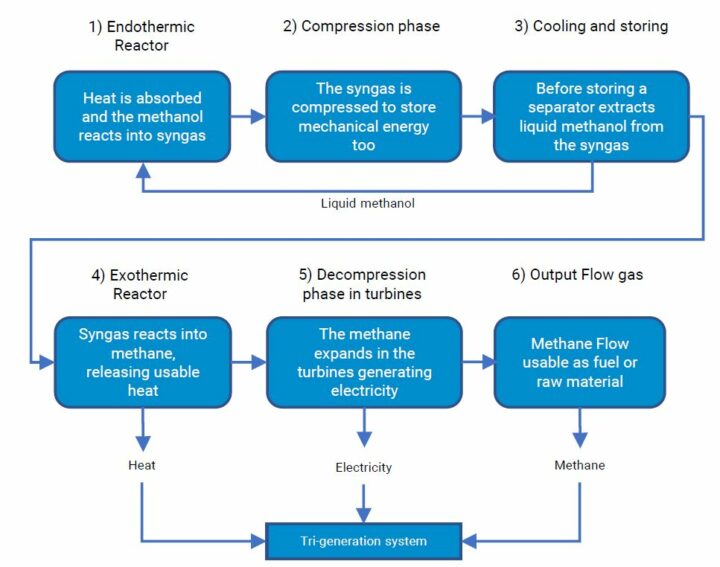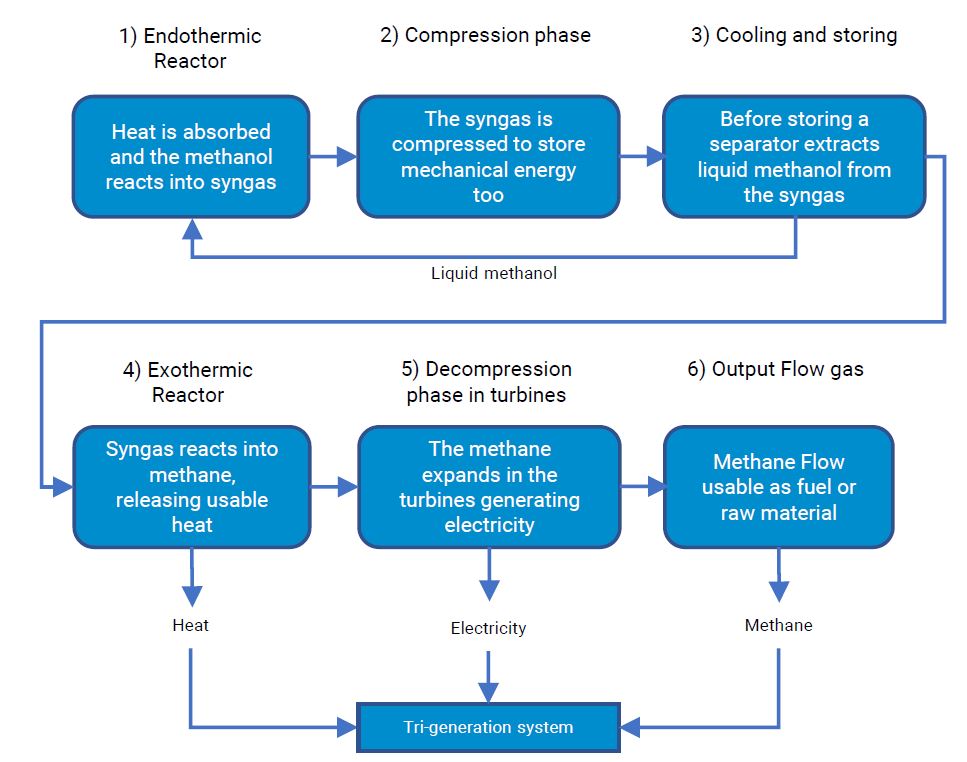The transformation of the global energy system in line with the Paris Agreement requires rapid uptake of renewable energy sources throughout all kinds of energy use. In order to optimize the use of renewable energy sources, efficient and cost-effective energy storage technologies are required. Thermal energy storage (TES) are one of the most promising technologies for renewable energy storage, especially in the areas of building heating and cooling systems, energy-intensive industries, and electric power generation. TES technologies can store heat or cold to be used later, under varying conditions such as temperature, place, or power. One promising TES technology, still in the R&D phase, is thermochemical storage (TCS). TCS systems store energy in endothermic chemical reactions, where the energy can be retrieved at any time by facilitating the reverse, exothermic reaction. TCS systems have the highest energy storage densities among TES technologies, therefore allowing the smallest system sizes, and the energy can be stored for long periods even at room temperature.
Currently, TCS systems are economically unviable, and in order to overcome this problem, researchers from the Universidad de Sevilla (Spain) have developed a TCS system coupled with mechanical energy storage technology. This system combines capabilities from both technologies and could help to achieve TCS systems economic viability. The system is based on the conversion of methanol into syngas and uses heat to store it for later use in a methanation process that supplies the accumulated energy. This thermochemical methanol-based storage system has the advantage of being complementary to methanol production from biomass, and if the heat needed is produced with solar thermal energy, the installation can be CO2 neutral.
The new system provides multiple benefits:
- High flexibility: The energy storage system could work for any thermal input power, be it for microgeneration or industrial scale.
- It allows long-term energy storage without thermal losses.
- Tri-generation system, capable of producing gas with a high methane content, thermal energy at high temperature, and electrical power.
- It allows storing thermal energy with high performance. The electrical or mechanical power to drive the compressors, stored during the charging phase, can be injected into the electrical network at the appropriate time of the day to meet peak demand.
- The methanation process allows the use of low-cost catalysts. Methane generated can be used in other processes.
The represented institution is looking for a collaboration that leads to commercial exploitation of the presented invention.
Institution: Universidad de Sevilla
TRL: 2
Protection status: Patent Application
Contact: Miguel Estruch / miguel@viromii.com



